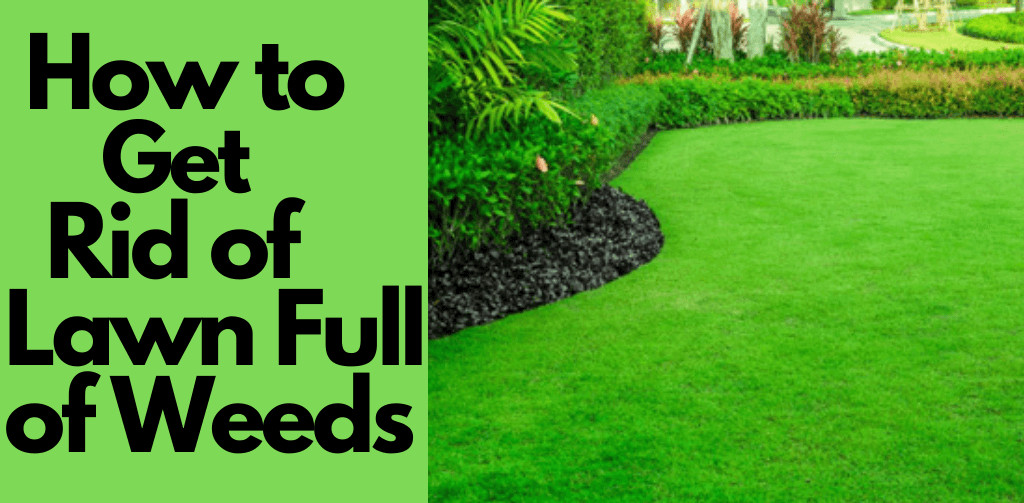It is important to run a weed killer spray to get a certain result. The effectiveness of weed killers can be difficult to determine, especially when hardy dandelions and strong ground ivy are found. How does one detect when to reapply weed killer? What is the length of time you must wait before you can get results with herbicide? Do you think weed killer works right away? And most important how long does weed killer last?
Knowing about the various weed killers on the market and their effects is essential to choosing the best one for your lawn. This article is meant to give you tips on when to spray it for weeds and see results in as little time as possible besides how long a weed killer lasts.
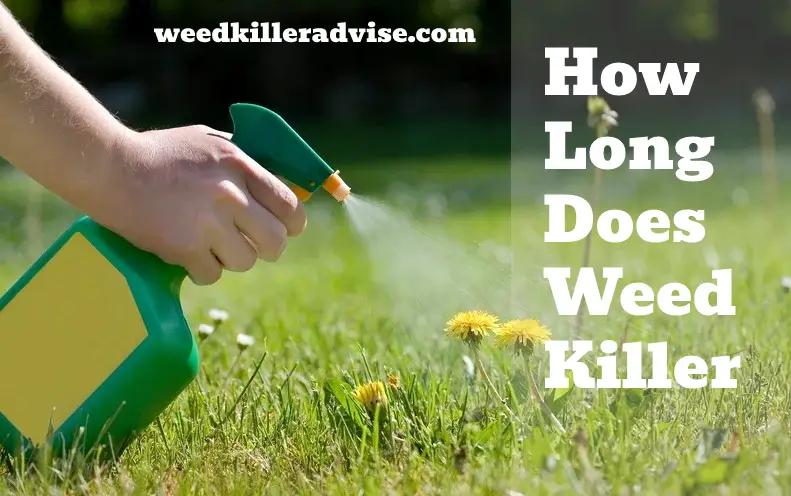
How Long Does Weed Killer Take?
It depends upon some types of weeds and weed killer. To kill all the weed types in your yard, you may need to use more than one weed killer if you have grass that is mainly weeds. It is important to consider the following questions to determine the proper use of weed killers: What, When, and Where:
What types of weeds are you fighting? Do you have broadleaf or grassy weeds? Do you have annuals or perennials? How long does Roundup take to work?
When are you planning to begin weed-killing efforts? The effectiveness of pre-emergent weed killers regarding growing season is determined by whether they are applied before seeds sprout.
Where are the weeds you’re killing? Are they on your lawn? Or are they in your garden? What are you tackling? It will help you choose the appropriate products to take out these nuisance weeds.
So, if you want to know more about how long for weed killer to work or how weed killer works here is the answer.
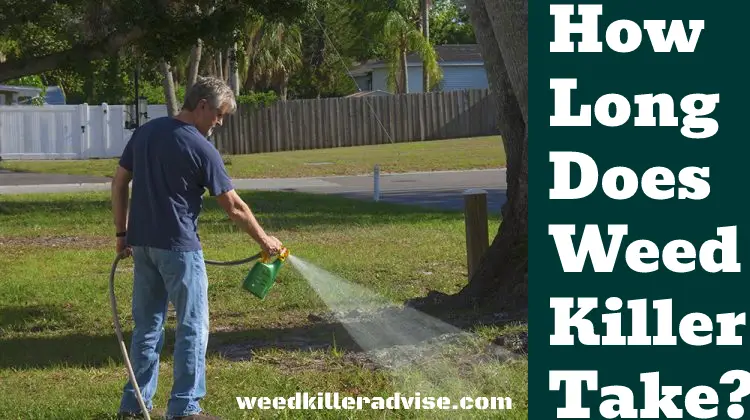
Types of Weed Killers
Roundup and other Contact Weed Killers
Roundup weed killers keep up with the latest and best-effective weed killers available on the market. These types of chemicals kill emergent weeds more generally than others.
Roundup’s pre-emergent weed control measures are also common among long-term weed control formulations. Plants in the application area received by these specialized formulations cannot sprout and grow for up to a year.
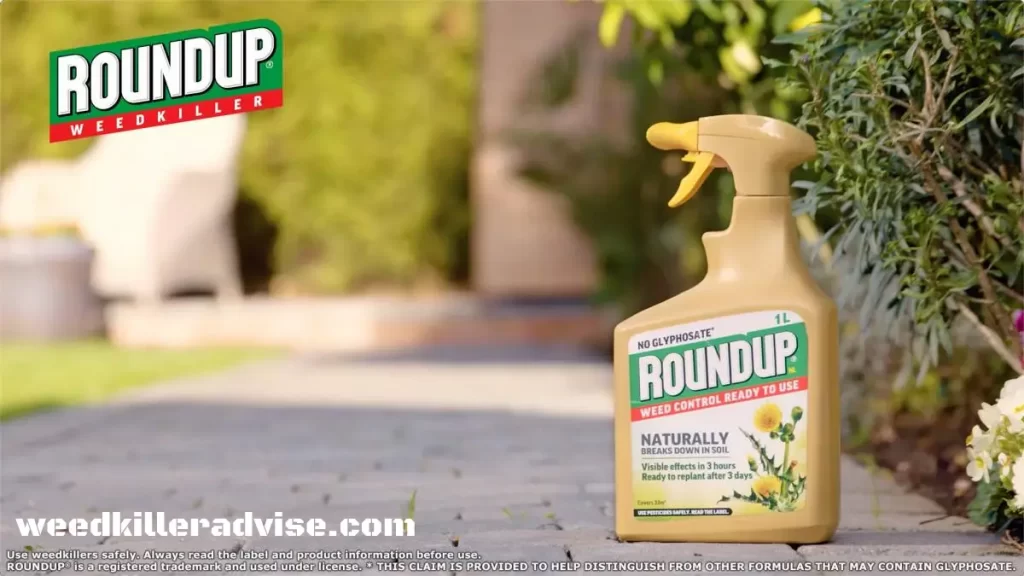
Emergent Weed Killers
Emergent weeds target emergent weed killers targeting established weeds and killing mature plants. Those poisons will kill dandelions and weed seeds in the soil. However, the poison won’t affect weeds that are in the ground.
There is a mixture of active ingredients used in emergent weed killers, affecting which weeds it targets. To know whether you’re using a selective weed killer or a non-selective weed killer, make sure you read the product description.
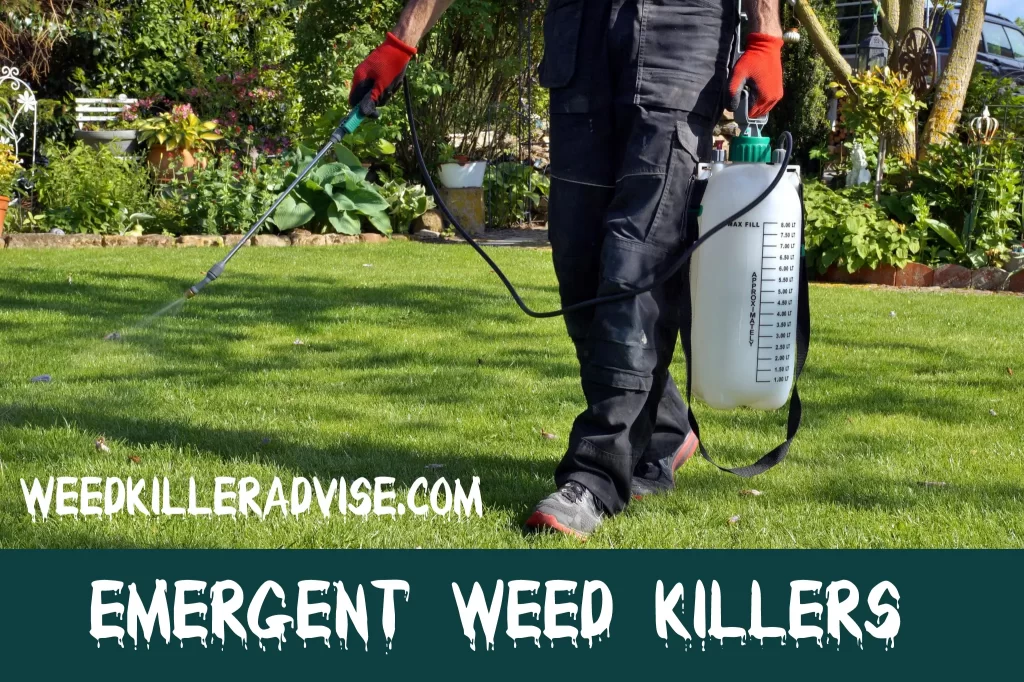
Pre-Emergent Weed Killers
The pre-emergent weed killer is created to knock out weeds in infancy. The bacteria found in the soil are killed, so new weeds and grasses cannot grow. Established or pre-emergent herbicides will not kill mature plants.
Pre-emergent weed killers can be applied anywhere in your lawn and garden, but they don’t discriminate. These weed killers will stop grass seeds or other plant’s growth. Do not apply to areas that will be seeded within the next three weeks or areas where desirable seedlings are present.
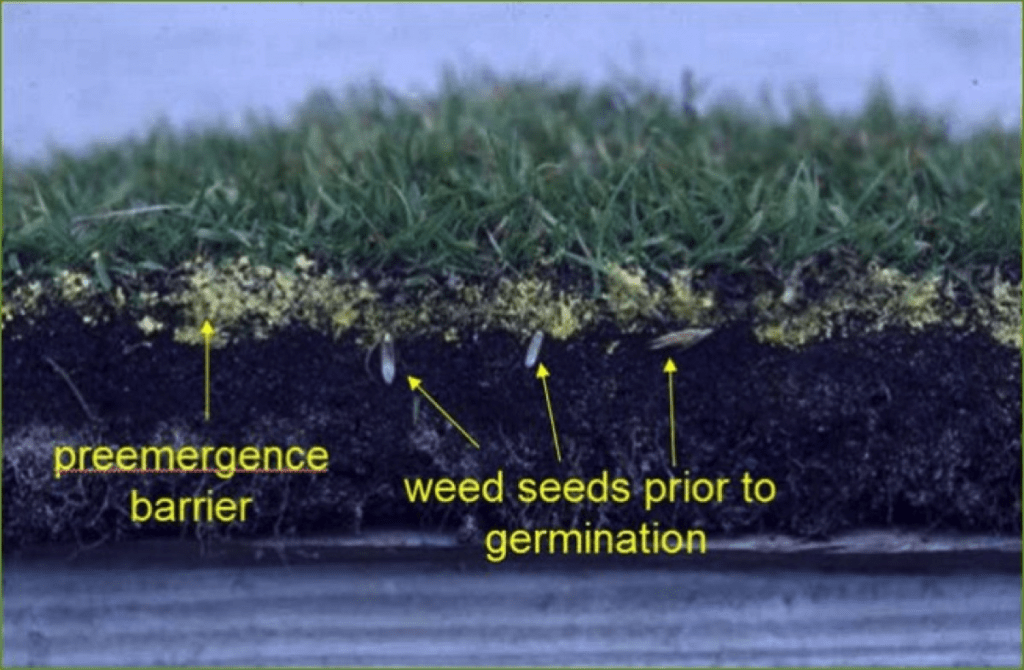
Selective Weed Killers
Selective weed killers kill only the weeds, leaving the turfgrass unharmed. It makes for a perfect situation. You’ll be able to get rid of the problem while going what you want.
Some of the most commonly found selective weed killers are broadleaf weed killers aimed at dandelions, chickweed, and clover. They will leave the grass undamaged. Additionally, demanding weed-killing formulations kill broadleaf weeds AND crabgrass, which is an insect lawn pest. It can be used to kill sedges and nutgrass, as well as selective weed killers.
Non-Selective Weed Killers
A non-selective weed killer is usually the fastest weed killer. All these weed killers will kill grasses and other plants and broadleaf weeds, woody plants, and weeds. These plants will destroy their enemies, but they’ll also kill any plants touching them.
If you are applying non-selective weed killers, make sure that they will work without damaging beneficial plants. Dandelions, ivy, or isolated tufts of pest grass are the best targets for these weed killers. If there are as many weeds as grass in some clover infestations, they are not viable solutions.
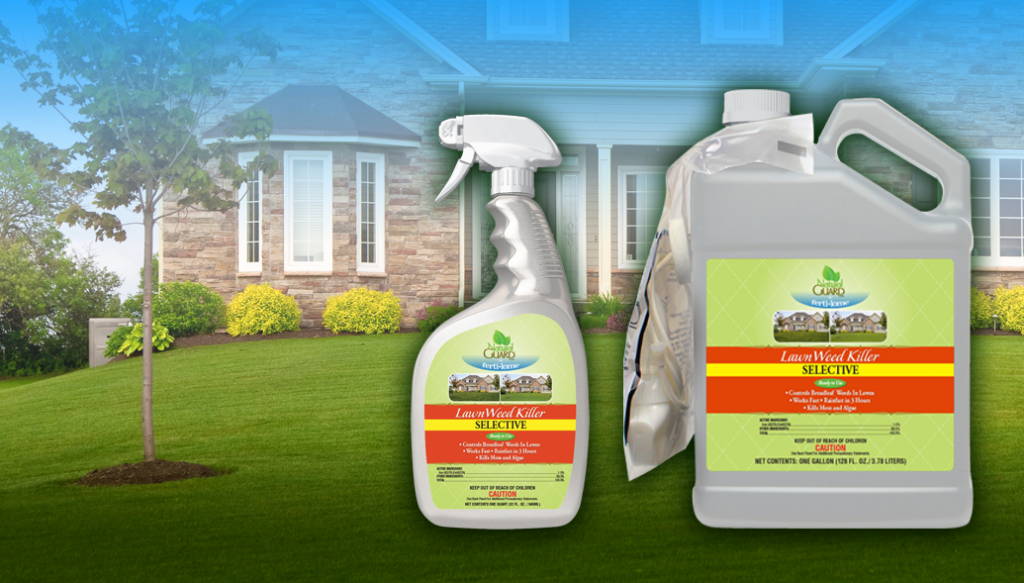
When to Apply Weed Killers
Applying weed killers at the right time can lead to a diminished effect or no effect at all, even if you have a good product and tools. It is uncertain how to utilize weed killers when the weather is cold or hot.
It is important to follow these simple guides when spraying weed killer on your lawn to see results. You should follow the product’s instructions and the climate where you live.
Roundup and other Contact Weed Killers:
Emergent Weed Killer:
Pre-Emergent Weed Killer:
How Long Does it Take for Weed Killer to Work?
How long does it take for weeds to die after spraying? You should start seeing results soon after your lawn has been weeded, and you have chosen the correct kind of weed killer. Some herbicides can work very rapidly, causing plants to wilt instantaneously. However, a few of these formulations may require more patience since they are targeted at specific weeds.
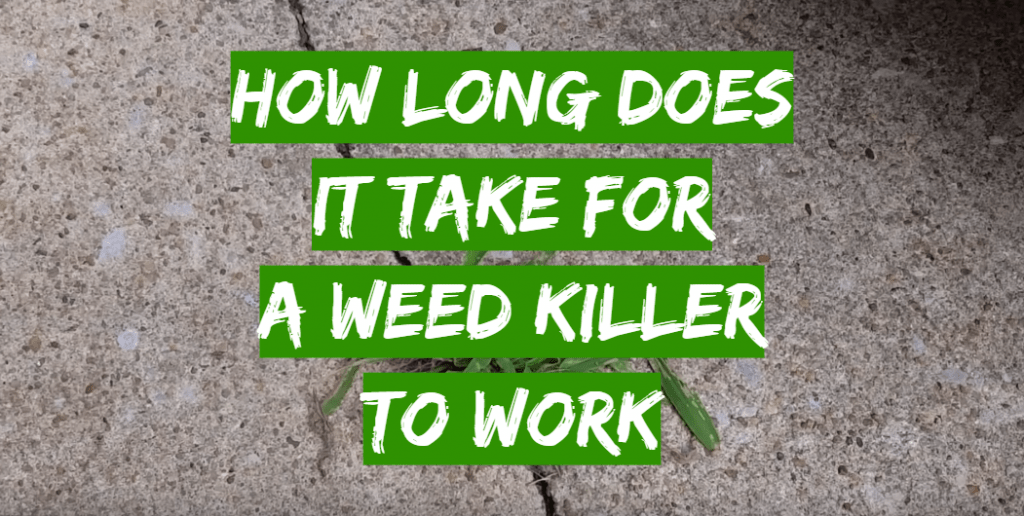
How Long Does It Take For Roundup To Work?
You won’t have to wait long if you are wondering what it takes for Roundup to work. Once standard Roundup has been sprayed on weeds, you’ll almost see results in 2–6 hours. The weeds will begin to fade and fall to seed.
You will also need to remember that even though the weed is already dying, it may take up to 2 weeks for Roundup to kill the whole root system. Roundup varieties designed to kill long-term weeds perform more slowly. They may not start to show results right away.
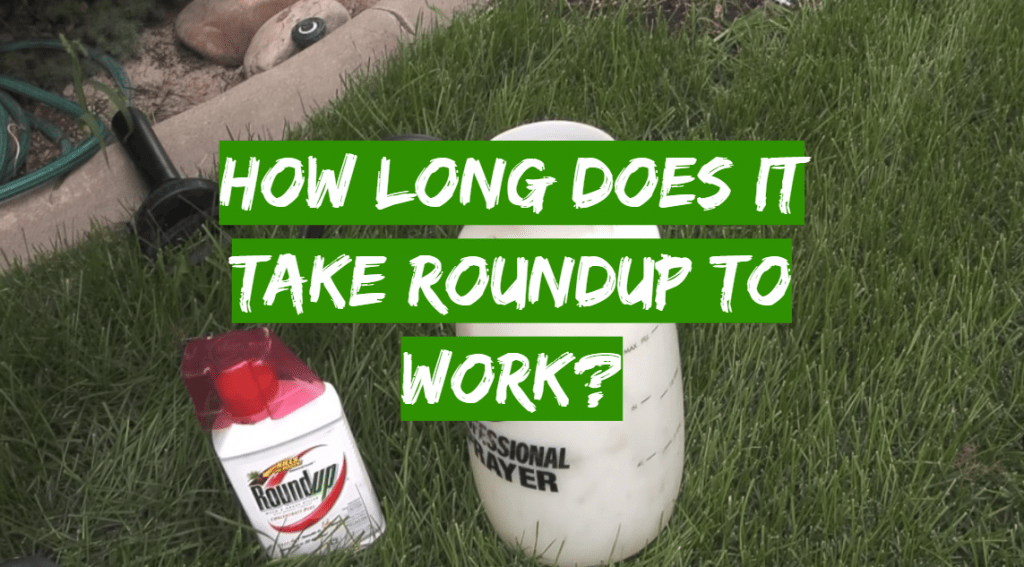
Broadleaf Weed Killers
When you use broadleaf weed killers in your grass, you may end up using one of the best weed and feed products on the market, or you may choose a weed and feed formula that will kill broadleaf weeds and improve grass health.
It would help if you had patience with both your weed control tool and weed control food inputs. Once applied, you will most likely see weeds begin to die within 5–7 days. Most should be eradicated 2–4 weeks following application.
Pre-Emergent Weed Killers
As early as the seeds begin to sprout, pre-emergent weed killers kill the weeds, but this is a process that usually eludes the eye. You don’t need to worry, though; weed seedlings are killed within hours after application with pre-emergent solutions.
It may result from a pre-emergent weed killer being applied too late or washed away by excessive rain if you see no new tufts of crabgrass or sprouting chickweed after late March.
How Long Does Weed Killer Stay in the Soil?
For anyone considering using Roundup, the process of weed removal can last up to three years in the soil. Although the length varies depending on the specific formulation, here are some general guidelines:
Weed killers remain in the soil for a very long time if you water them regularly or if your climate experiences frequent rain, which leads to the removal of them more quickly. Conversely, if the area is dry, a weed killer is kept longer in the soil.
Also, Read!
FAQs
Final Verdicts
After the above guide, we hope now you can understand how long does a weed killer last? If you still have confusion, ask your question, we are always here to appreciate your queries.

Donald David is a Botanist who knows well about different types of weeds and how these are used to make medicines. He also knows well that sometimes weeds are not good at your lawn and create huge damages to favorite plants and animals. So, he aimed to describe weed killer products.
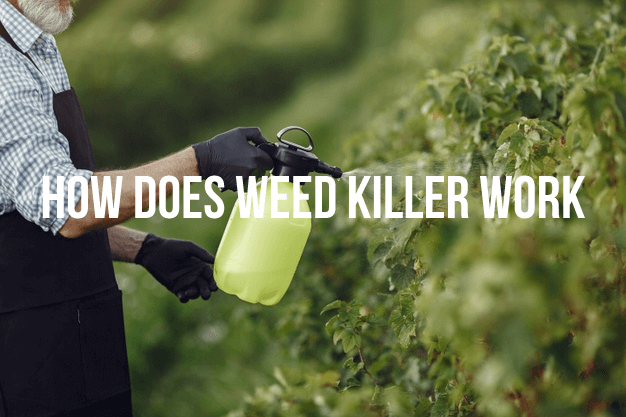
![Best Weed Killers UK [2024 Reviews & Guide] – Weed Killer Advise Best Weed Killers UK [2022 Reviews & Guide] – Weed Killer Advise](https://weedkilleradvise.com/wp-content/uploads/2020/06/best-weed-killer-150x150.webp)
